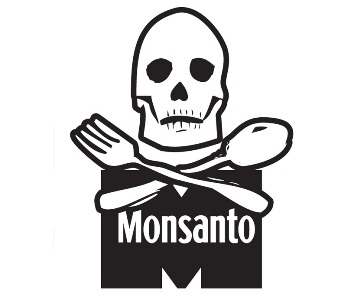Biotechnology giant Monsanto has been the leader in genetically modifying the planet, altering the genetic structure of crops and seeds that are consumed by individuals around the globe. Scientific research has found that GM crops and herbicides are not only leading to a number of health disorders, but they are also spawning mutated species of insects and powerful superweeds. This is only a couple of the ways that Monsanto continues to recklessly endanger human health and the environment -- here are the complete 4.
1. GM crops consistently linked to organ problems, other biological damage
Despite hard evidence linking the consumption of GM crops to organ disruption and a host of other health ailments, Monsanto continues to push its GM crops on developing nations under the guise of solving world hunger and empowering local farmers. In a telling review of 19 studies analyzing the dangers of GM crops including corn and soybeans, scientists reached a shocking conclusion regarding the true safety of these ubiquitous food staples. Researchers concluded that consumption of genetically altered corn and soybean products can actually lead to significant organ disruption in rats and mice.
2. Bt-containing gmo crops are spawning mutated superbugs
Going beyond the initial genetic modification process, Monsanto also offers GM crops filled with a toxic biopesticide known as Bt. Incorporated into the crops to kill insects, Bt usage has led to the development of mutated insects that are resistant to the biopesticide. Insects that are continually exposed to Bt actually begin to develop a resistance to the toxin through the act of mutation. In present day, around 8 insect populations have mutated to resist Bt. Of the 8, 2 species are specifically resistant to Bt sprays and a staggering 6 are resistant to Bt crops as a whole. As a result of the resistance, farmers are forced to increase their pesticide use.
3. Roundup creating superweeds spanning millions of acres
Superweeds now infest over 120 million hectares of farmland, all thanks to Monsanto's popular herbicide Roundup. Farms across the world are being infested with herbicide-resistant superweeds that show no sign of stopping. These are the very same farms that Monsanto claims to be assisting and empowering. The super resistant weeds developed an immunity to glyphosate, a primary herbicide that Roundup contains. In 2010, experts estimated the weeds to cover over 120 million hectares across the globe, 4.5 million of which are within the United States. Nations like Australia, Argentina, Brazil, Chile, Europe and South Africa are experiencing an increase in these superweeds.
4. Monsanto is involved in creating aspartame
A 1999 investigation by The Independent revealed that aspartame is actually created using GM bacteria. The article, entitled "World's top sweetener is made with GM bacteria" included a Monsanto spokesperson admitting that aspartame was indeed created using genetically altered bacteria. Aspartame, of course, has been linked to brain tumors and other health conditions. Amazingly, one showed that of 48 rats experimented on, up to 67 percent of all female rats developed tumors roughly the size of golf balls or larger.







